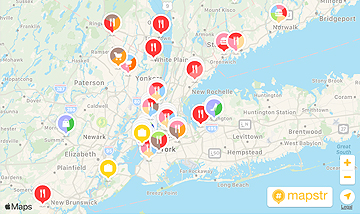Official speeches and statements - August 9, 2016
2. Opening of the 2016 Olympic Games - Presentation of the Paris 2024 bid - Fight against terrorism - Fight against doping - Press conference by M. François Hollande, President of the Republic (excerpts) (Rio de Janeiro - August 5, 2016)
3. European Union - Fight against terrorism/migration - Economic policy - Article by M. Stéphane Le Foll, Minister of Agriculture, Agrifood and Forestry, in the daily newspaper Les Echos (Paris - August 9, 2016)
1. Attack in Pakistan - Communiqué issued by the Presidency of the Republic (Paris - August 8, 2016)
The suicide attack perpetrated in the middle of the crowd gathered outside the hospital in Quetta, southern Pakistan, killed 70 people and wounded more than 110, according to a toll that is still, unfortunately, provisional.
The French President condemns this appalling act and expresses France’s full solidarity with the Pakistani people, who had already been sorely tested by the terrible attack in Lahore in March.
2. Opening of the 2016 Olympic Games - Presentation of the Paris 2024 bid - Fight against terrorism - Fight against doping - Press conference by M. François Hollande, President of the Republic (excerpts) (Rio de Janeiro - August 5, 2016)
(...)
THE PRESIDENT - France is capable of organizing major events: we’ve shown it in the recent - I could almost say the immediate - past with football’s Euro 2016, and I could also mention the Tour de France, the Paris Marathon, Roland-Garros and indeed major political events that will make a difference to the planet, like COP21. We’ve acquired expertise: expertise in hospitality - we’ve had it for a long time -, expertise in culture - we lay claim to that - and expertise in organizing very major events, and this expertise means the security of sports people and spectators is guaranteed inside and outside stadiums. (...)
We share values with the IOC: the Olympic movement’s values - excellence, effort, respect, particularly for diversity, and also peace and solidarity. Those values echo the values of the French Republic: liberty, equality, fraternity. Fraternity is no doubt what unites us the most in preparing today’s Olympic Games here in Rio, next in Tokyo and, I hope, in Paris in 2024, because those are the values that provide the best answer to the challenges which the world faces today and will continue to face tomorrow. The answer, if I can put it that way, is Paris.
Q. - (Question in English from a journalist about security conditions in France)
(...)
THE PRESIDENT - The whole world is under threat from terrorism; no country, no region, no city can think it’s immune; we must combat terrorism, we’re doing so, and I hope with all my heart that by 2024 we’ll have won victories. But we’ve been tested - you’re right to say so - by attacks for several months; we’ve foiled others, but through these ordeals we’ve been able to protect ourselves even better and in particular to protect major events. That’s what we were capable of doing for Euro 2016, which involved several cities; the competition lasted more than a month and there were no incidents or accidents or attacks. (...)
3. European Union - Fight against terrorism/migration - Economic policy - Article by M. Stéphane Le Foll, Minister of Agriculture, Agrifood and Forestry, in the daily newspaper Les Echos (Paris - August 9, 2016)
A new contract for Europe
Faced with the risk of terrorism and the victory of Brexit, Europe must regain its ambition, on the basis of three commitments: to guarantee freedom and security, to deepen the organization of the Euro Area, and to work for its neighbors’ stability and development.
France has just lived through some terrible attacks. The victims and their families are in mourning, stricken to the core. Germany and Belgium have also experienced similar acts, for which Daesh [so-called ISIL] has claimed responsibility. Basically, our democracies are under threat and our freedoms are being questioned. And it is through unity that our countries will be able to overcome their enemies and tackle, in a lasting way, the challenges they face.
Europe is the manifestation of that unity. So protecting it is our collective responsibility. It is time to shoulder that responsibility fully and collectively. True, this means obligations for everyone. But it is also the only way of generating shared benefits, which each country seeks but none can achieve alone. Alone in the face of the world’s challenges we are nothing, and if we are weakened then our power, our rights and our freedoms will suffer heavily from it.
In order to function, Europe must change; we must change. It is up to us to ensure we awaken the Union and regain our collective ambition through a new contract.
The first commitment that must guide us is to design a Europe that protects our freedoms and security. The Brexit supporters’ victory is primarily the result of a fear of immigration from the rest of the world, but above all - and this is the most terrible part - the questioning of European workers’ freedom of movement, one of the four freedoms that form the basis of the single market. This is not about Schengen but is the simple result of a national decision to take in large numbers of workers from Eastern Europe - well in excess of European obligations - which was never politically accepted on the island.
In the face of this restless fear everywhere, there is a major political message to be sent. Yes, firmness is necessary to control immigration - but in order for it to remain a strength, an asset for our countries. To suggest that returning to the borders of old will enable us to protect ourselves is a lie. On the contrary, Europe must shoulder its collective responsibility on this, and be spurred into organized and coherent action.
Protecting ourselves means giving ourselves the means to fulfill this new contract, by developing a genuine external border police force. Frontex must be solidified through active cooperation between all countries. Likewise, we must coordinate our asylum policies. For example, we do not need a new Schengen, but we must think Schengen through better and adapt it to today’s challenges. This goes hand in hand with the European defense project, which must be revitalized. France, through the decisions the President has taken, shoulders a large part of the EU’s security, but in too isolated a way. The others must be more proactive in standing alongside us.
The supporters of division may object that our continent, when divided, dominated the world. That is correct, but in 1914 Europe alone accounted for 20% of the world’s population and 60% of its GDP. With 7% of the population and about 20% of global wealth today, unity is necessary if we want to continue influencing the world’s major choices tomorrow. So we must speak with a single voice, a strong voice, firm if necessary, particularly in the field of trade. Michel Rocard was quite right to say Europe is a set of democratic values linked to an environmentally-friendly and competitive economic system with a high level of welfare.
Defending this model, written into the treaties, requires us to go deeper in organizing the Euro Area: it is the second commitment of this contract. It must be remembered that the euro is primarily a currency that protects the weakest and smallest economies. The full solidarity of that currency must be reaffirmed, and in this regard we should welcome the recent changes in the European Central Bank. The euro is a factor of strength, and we should therefore dare to reorganize it, giving it a government and a parliament, in order to embark on the challenge of social and fiscal harmonization.
But against the backdrop of the Euro Area, the Europe of the Twenty-Eight must once again become the Europeans’ project, that of the future and therefore of young people. This means investing by doubling the Juncker Plan, but also educating, researching and innovating so that Europe’s young people will drive tomorrow’s ideas and progress. Finally, we must work to ensure the stability and the economic and social development of all those countries whose destiny is intertwined with ours, in the Mediterranean, the Middle East and Africa. A major investment and development plan must be our third commitment. Agriculture has a crucial role to play in this undertaking, for the sake of our southern neighbors’ food security and improved rural living conditions.
Europe is too often reduced to its institutions, but in reality it is much more than that. It is a political project in the noblest sense of the term. Europe is our destiny, François Mitterrand told us; today it is also the destiny of our neighbors. We must do everything to prevent those who want to destroy Europe from achieving their goal. Creating and building in the general interest is always harder and takes longer than destroying with the sole aim of crying victory on an election night. So let us get to work, on a new contact for Europe.















